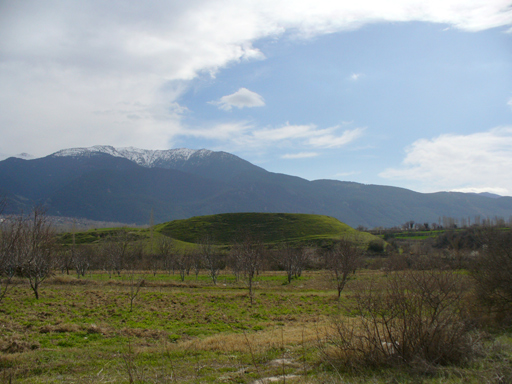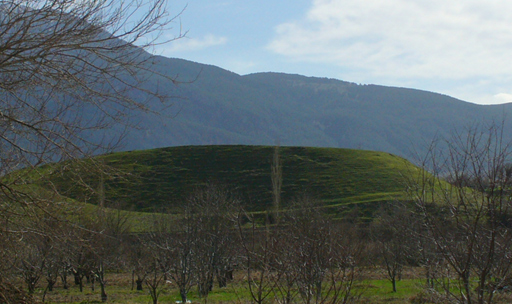History
Colossae was a large and prosperous city during the 5th and 4th centuries BC. It was eventually eclipsed in importance during the Hellenistic and Roman periods by the neighboring cities of Laodicea and Hierapolis. The area produced fine wool and textiles. The economic prosperity of the city was also due to its being located aon the main trade route from the Aegean coast to the Euphrates. Like Laodicea and Hierapolis, Colossae was damaged by a severe earthquake in 60 AD. By the 9th century the site was abandoned, its remaining inhabitants having moved to the nearby town of Chonae (modern Honaz.)
|
Biblical SignificanceThe ancient city of Colossae is remembered today primarily because one
of the letters in the New Testament is addressed to "the saints and faithful brothers and sisters in Christ in Colossae" (Col 1:2). Aside from this
one reference, the city of Colossae does not appear in the New Testament. Paul had apparently not visited the Christians in Laodicea
prior to writing the letter. (Colossians 2:1 refers to the Christians at
Laodicea as among those who had never seen Paul.) The founder of the
church at Colossae was likely Epaphras (Col 1:7; 4:12), who had ministered not only at Colossae but at Laodicea and Hierapolis as well (Col
4:13). According to Colossians 4:9, the slave Onesimus was also from
Colossae. On behalf of this runaway slave, Paul wrote to Philemon, the
slave's master, who would have lived in Colossae, informing him of
Onesimus' return and urging Philemon to treat Onesimus as a Christian
brother. The Letter to Philemon is addressed not just to Philemon but
also to the entire church that met in his house in Colossae.
|
 The site of ancient Colossae is now only an unexcavated mound and there is little to see. Our bus did stop here for a few minutes so we could see this green mound from a distance.
The site of ancient Colossae is now only an unexcavated mound and there is little to see. Our bus did stop here for a few minutes so we could see this green mound from a distance.
 Even a telephoto shot does not show any remains. Our guide could give no reason why either the country of Turkey or any Christian archaeologists would excavate this site, in view of the interest of Christians in this site. It does seem that Flinders University from Adelaide, Australia is interested in such a project.
Even a telephoto shot does not show any remains. Our guide could give no reason why either the country of Turkey or any Christian archaeologists would excavate this site, in view of the interest of Christians in this site. It does seem that Flinders University from Adelaide, Australia is interested in such a project.
A short bus ride brought us to Laodicea.
